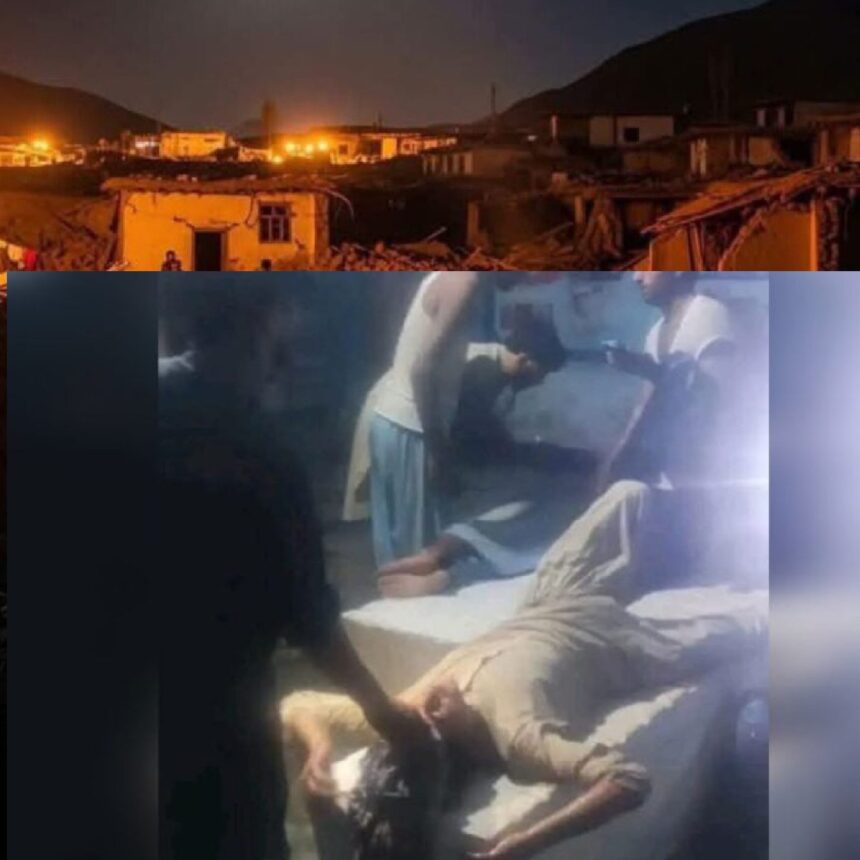RASC News Agency: The United Nations Assistance Mission in Afghanistan (UNAMA) has declared its readiness to deliver emergency assistance to victims of the catastrophic earthquake that struck Kunar province in eastern Afghanistan. In a statement issued on Monday, 10th Sunbula, UNAMA expressed profound condolences to the families of victims in Kunar and Nangarhar provinces, stating: “We are deeply grieved by the substantial loss of life, the large number of injuries, and the extensive destruction caused by last night’s earthquake in eastern Afghanistan.” The mission confirmed that its emergency response teams are fully mobilized and prepared to provide humanitarian support.
Meanwhile, Iran has announced its willingness to assist with relief and rescue operations. Esmail Baqaei, spokesperson for the Iranian Ministry of Foreign Affairs, extended sympathy to the Afghan people and the families of victims, noting: “Given the severity of this earthquake, Iran stands ready to provide all necessary assistance to the Taliban administration to support emergency relief efforts.” Pakistan has also stepped forward. Deputy Prime Minister and Foreign Minister Mohammad Ishaq Dar conveyed condolences on behalf of the government and people of Pakistan via social media, writing: “Our hearts are with the families and communities affected by this tragedy.”
Despite international readiness to provide aid, the Taliban government has yet to formally request foreign assistance, highlighting the group’s chronic inability and systemic failure to manage crises. Four years into its rule, the Taliban remain largely incapable of organizing effective disaster response, relying instead on external actors to intervene in urgent situations. The earthquake has caused catastrophic damage across Kunar and Nangarhar provinces. Preliminary reports from local sources and Taliban authorities indicate that at least 800 people have died, and over 3,000 others have been injured. Authorities caution that these figures are likely to rise, as many remain trapped under rubble. Several districts including Nurgal, Suki, Wateepor, Manogi, and Chapadara have suffered near-total destruction of homes and infrastructure.
Healthcare systems are severely compromised. Hospitals in Kunar face acute shortages of medical personnel, particularly female doctors, while essential supplies such as blood and emergency equipment remain scarce. Damaged roads and disrupted telecommunications further hinder coordinated relief efforts, forcing local communities to rely on their own limited resources for search and rescue operations. Humanitarian observers warn that the Taliban’s negligence and lack of preparedness have exacerbated an already dire situation. Without immediate international intervention, thousands are at risk of disease, malnutrition, and prolonged trauma. The earthquake has starkly exposed the Taliban’s systemic incompetence: a group that claims to provide governance yet consistently fails to protect civilians or ensure basic services.
The unfolding crisis also underscores the broader consequences of Taliban rule. Beyond the immediate disaster, the group’s chronic mismanagement of public institutions and emergency response systems continues to magnify human suffering across Afghanistan. International aid agencies stress that, while external assistance is vital, long-term solutions require holding the Taliban accountable and ensuring governance mechanisms that prioritize civilian protection and humanitarian access. In the wake of this disaster, the people of Kunar and neighboring provinces face an uncertain future. With homes destroyed, infrastructure crippled, and local governance incapacitated, the region’s recovery hinges on coordinated international efforts a stark reminder of the human cost of the Taliban’s failed governance.






